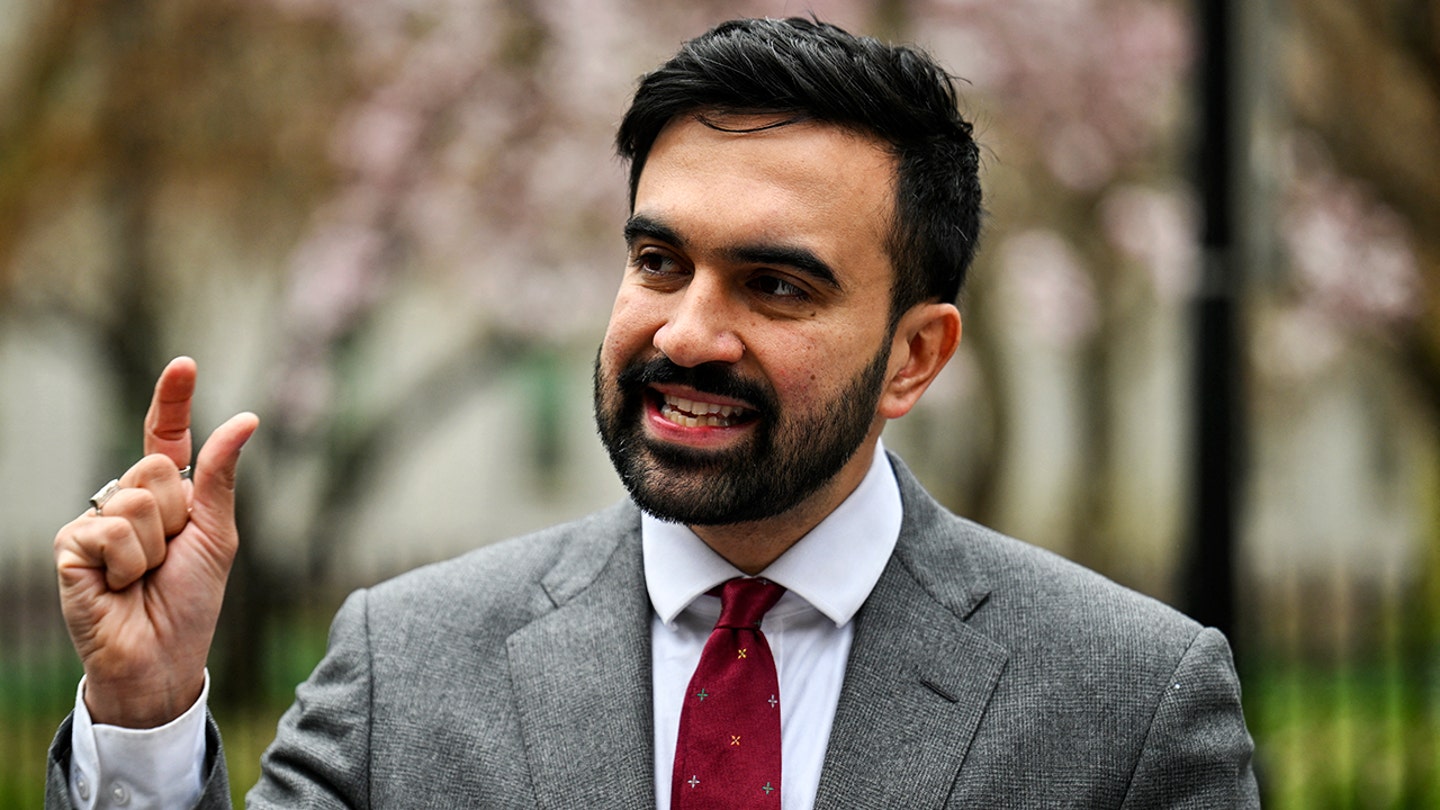
Fighter pilots take directions from AI in Pentagon’s groundbreaking test
Entities mentioned:
- U.S. Fighter Pilots: Duty, Professional pride, Security
- Pentagon: Security, Competitive spirit, Influence
- Air Force: Security, Professional pride, Competitive spirit
- Navy: Security, Professional pride, Competitive spirit
- Raft AI: Ambition, Innovation, Recognition
- Shubhi Mishra: Ambition, Recognition, Influence
- Federal Aviation Administration (FAA): Security, Duty, Professional pride
- National Transportation Safety Board: Duty, Security, Professional pride
Article Assessment:
Credibility Score: 75/100
Bias Rating: 55/100 (Center)
Sentiment Score: 65/100
Authoritarianism Risk: 35/100 (Generally Democratic)
Bias Analysis:
The article presents a balanced view of the AI technology, discussing both its potential benefits and ethical concerns. While it leans slightly towards emphasizing the positive aspects, it also includes cautionary notes about human involvement in critical decisions.
Key metric: Military Technological Advantage
As a social scientist, I analyze that this article highlights a significant advancement in military technology, specifically in air combat management. The integration of AI into fighter pilot operations represents a potential paradigm shift in warfare strategy. This development could dramatically enhance the U.S. military's decision-making speed and accuracy in air combat scenarios, potentially providing a substantial edge over adversaries. However, it also raises ethical questions about the role of AI in life-or-death decisions and the future of human involvement in combat operations. The test's success suggests a trend towards increased AI integration in military operations, which could have far-reaching implications for national defense strategies, international military dynamics, and the nature of future conflicts. The emphasis on maintaining human oversight indicates a cautious approach to this technological integration, balancing innovation with ethical considerations.

Zohran Mamdani's $1M fundraising haul fueled by out-of-state donors, data reveals
Entities mentioned:
- Zohran Mamdani: Ambition, Recognition, Influence
- Andrew Cuomo: Competitive spirit, Power, Legacy
- Curtis Sliwa: Duty, Loyalty, Competitive spirit
- Eric Adams: Power, Self-preservation, Control
- Dora Pekec: Professional pride, Loyalty, Enthusiasm
Article Assessment:
Credibility Score: 70/100
Bias Rating: 55/100 (Center)
Sentiment Score: 45/100
Authoritarianism Risk: 30/100 (Generally Democratic)
Bias Analysis:
The article presents a relatively balanced view, including data from multiple candidates. However, there's a slight emphasis on Mamdani's out-of-state funding, which could be interpreted as mildly critical.
Key metric: Political Polarization
As a social scientist, I analyze that this article highlights the growing influence of out-of-state donors in local elections, potentially exacerbating political polarization. Mamdani's significant out-of-state fundraising suggests a nationalization of local politics, which could lead to increased ideological divisions and reduced focus on local issues. The contrast between Mamdani's 'socialist' support and Cuomo's appeal to moderates further emphasizes this divide. This trend may result in candidates being more beholden to national interests rather than local constituents, potentially impacting the effectiveness of local governance and increasing political polarization within the city.

‘Bold’ general who led US’ ‘Midnight Hammer’ strikes on Iran ends Middle East reign
Entities mentioned:
- Gen. Michael 'Erik' Kurilla: Duty, Professional pride, Determination
- U.S. Central Command (CENTCOM): Security, Control, Influence
- Pete Hegseth: Loyalty, Patriotism, Recognition
- Adm. Brad Cooper: Duty, Ambition, Professional pride
- Iran: Self-preservation, Power, Defiance
Article Assessment:
Credibility Score: 75/100
Bias Rating: 65/100 (Lean Right)
Sentiment Score: 65/100
Authoritarianism Risk: 35/100 (Generally Democratic)
Bias Analysis:
The article leans slightly right, evident in its positive portrayal of military action and leadership. The use of quotes from conservative figures like Pete Hegseth and the emphasis on strike operations indicate a pro-military stance typical of right-leaning media.
Key metric: Military Readiness and Projection of Power
As a social scientist, I analyze that this article highlights the changing of guard in U.S. Central Command, emphasizing the strategic importance of the Middle East in U.S. military operations. The focus on Gen. Kurilla's career and recent operations against Iran and Houthi rebels underscores the ongoing tensions in the region and the U.S.'s readiness to engage in military action. The transition to Adm. Cooper suggests continuity in strategy and approach. This leadership change and the highlighted operations impact U.S. military readiness and power projection by demonstrating operational capabilities and commitment to regional allies, while also potentially escalating tensions with adversaries like Iran.

Bolton unleashes on Trump Ukraine policy days after FBI raid
Entities mentioned:
- John Bolton: Revenge, Self-preservation, Justice
- Donald Trump: Power, Recognition, Legacy
- FBI: Duty, Justice, Security
- Vladimir Putin: Power, Control, Influence
- Pentagon: Security, Control, Professional pride
Article Assessment:
Credibility Score: 65/100
Bias Rating: 55/100 (Center)
Sentiment Score: 30/100
Authoritarianism Risk: 35/100 (Generally Democratic)
Bias Analysis:
The article presents multiple viewpoints, including criticisms of Trump's policies, but relies heavily on Bolton's perspective. While it includes some factual reporting, the emphasis on Bolton's critique slightly tilts the balance, though not significantly enough to be classified as partisan.
Key metric: International Relations and Diplomacy
As a social scientist, I analyze that this article highlights significant tensions in U.S. foreign policy, particularly regarding Ukraine and Russia. Bolton's critique of Trump's approach suggests a lack of coherence and strategy in diplomatic efforts, potentially weakening the U.S. position on the global stage. The reported FBI raid on Bolton's property adds another layer of complexity, indicating potential internal conflicts within the U.S. political establishment. This situation could impact U.S. credibility in international negotiations and alliances, especially concerning Eastern European security dynamics. The discord between different branches of government (White House, Pentagon) on Ukraine policy further underscores the challenges in maintaining a unified and effective foreign policy stance.

Dems remain 'completely culturally disconnected,' says former Democratic advisor
Entities mentioned:
- Democratic Party: Control, Influence, Recognition
- Former Democratic advisor: Professional pride, Influence, Duty
Article Assessment:
Credibility Score: 45/100
Bias Rating: 65/100 (Lean Right)
Sentiment Score: 30/100
Authoritarianism Risk: 25/100 (Generally Democratic)
Bias Analysis:
The article presents a critical view of Democrats from a former insider, suggesting a right-leaning bias. The lack of counterarguments or context leans away from a balanced presentation.
Key metric: Party affiliation/voter registration
As a social scientist, I analyze that this brief article suggests the Democratic Party is struggling to connect culturally with parts of the electorate, according to a former advisor. This implies potential challenges for Democrats in maintaining or growing party affiliation and voter registration. The advisor's willingness to publicly criticize their own party indicates a level of internal concern about the party's messaging and electoral prospects. However, without more context or details, it's difficult to assess the full implications or validity of this claim.

'We're going to bring it home': Trump commerce secretary shares what's next after Intel deal
Entities mentioned:
- Howard Lutnick: Professional pride, Duty, Influence
- Donald Trump: Ambition, Legacy, Power
- Intel: Competitive spirit, Greed, Recognition
- China: Power, Competitive spirit, Security
Article Assessment:
Credibility Score: 55/100
Bias Rating: 65/100 (Lean Right)
Sentiment Score: 70/100
Authoritarianism Risk: 35/100 (Generally Democratic)
Bias Analysis:
The article leans right due to its positive framing of Trump administration policies and its presentation on a typically conservative-leaning program. The language used, such as 'bring it home', appeals to nationalist sentiments often associated with right-wing politics.
Key metric: US Economic Competitiveness
As a social scientist, I analyze that this article suggests a strategic move by the Trump administration to bolster US economic competitiveness, particularly in the tech sector. The deal with Intel, a major US semiconductor company, appears to be part of a broader strategy to strengthen domestic technology production and reduce dependence on foreign suppliers, especially China. This move could potentially impact US economic competitiveness by fostering innovation, creating high-skilled jobs, and securing critical supply chains. However, the limited information provided makes it difficult to assess the full scope and potential effectiveness of these initiatives.

Trump touts Kim Jong Un relationship amid South Korea summit
Entities mentioned:
- Donald Trump: Power, Recognition, Influence
- Kim Jong Un: Power, Self-preservation, Control
- Lee Jae Myung: Duty, Unity, Security
- Kim Yo Jong: Loyalty, Power, Control
Article Assessment:
Credibility Score: 65/100
Bias Rating: 55/100 (Center)
Sentiment Score: 45/100
Authoritarianism Risk: 35/100 (Generally Democratic)
Bias Analysis:
The article presents multiple viewpoints, including Trump's statements and contrasting perspectives. While it leans slightly towards emphasizing Trump's statements, it also includes counterpoints and context, maintaining a relatively balanced approach.
Key metric: International Relations and Diplomacy
As a social scientist, I analyze that this article highlights the complex dynamics of US-North Korea relations, particularly through the lens of former President Trump's personal approach to diplomacy. Trump's emphasis on his relationship with Kim Jong Un, despite the lack of concrete progress on denuclearization, suggests a prioritization of personal rapport over traditional diplomatic processes. This approach has implications for the consistency and long-term effectiveness of US foreign policy in the region. The article also touches on tensions with South Korea, a key US ally, indicating potential strains in that relationship. The juxtaposition of Trump's positive rhetoric towards North Korea with his critical comments about South Korea raises questions about the stability and coherence of US alliances in East Asia.

Trump threatens lawsuit over 'blue slips' as top GOP senator bucks demand to bend Senate rules for nominees
Entities mentioned:
- Donald Trump: Power, Control, Ambition
- Chuck Grassley: Duty, Professional pride, Loyalty
- Senate Democrats: Control, Competitive spirit, Influence
- Chuck Schumer: Power, Influence, Competitive spirit
- Cory Booker: Influence, Control, Loyalty
- Andy Kim: Influence, Control, Loyalty
- Alina Habba: Ambition, Power, Recognition
- Pam Bondi: Power, Control, Loyalty
Article Assessment:
Credibility Score: 75/100
Bias Rating: 55/100 (Center)
Sentiment Score: 35/100
Authoritarianism Risk: 65/100 (Authoritarian Tendencies)
Bias Analysis:
The article presents multiple viewpoints, including Trump's criticisms and Grassley's defenses. While it gives slightly more space to Trump's perspective, it balances this with context and opposing views, maintaining a relatively centrist position.
Key metric: Judicial Appointment Efficiency
As a social scientist, I analyze that this article highlights a significant conflict between the executive and legislative branches over the judicial appointment process. The 'blue slip' tradition, while not law, has become a point of contention that impacts the efficiency and partisan nature of judicial appointments. Trump's threat to sue over this practice indicates an escalation in the power struggle between the presidency and the Senate. This conflict has the potential to alter long-standing Senate traditions and could lead to increased polarization in the judicial nomination process. The resistance from Senator Grassley, a member of Trump's own party, demonstrates the complexity of this issue and the tension between party loyalty and institutional norms.

DC arrests surpass 1,000 as Trump-backed crackdown enters 12th homicide-free day
Entities mentioned:
- John Bolton: Revenge, Self-preservation, Indignation
- Donald Trump: Power, Recognition, Legacy
- FBI: Justice, Duty, Professional pride
- Vladimir Putin: Power, Control, Influence
- Pentagon: Security, Control, Professional pride
Article Assessment:
Credibility Score: 70/100
Bias Rating: 55/100 (Center)
Sentiment Score: 30/100
Authoritarianism Risk: 35/100 (Generally Democratic)
Bias Analysis:
The article presents multiple viewpoints, including critical perspectives of Trump's policies, but also includes Trump's actions without overtly positive or negative framing. While it leans slightly towards criticism, it maintains a relatively balanced approach by presenting factual information from various sources.
Key metric: International Relations and Diplomacy
As a social scientist, I analyze that this article highlights significant tensions in U.S. foreign policy, particularly regarding the Ukraine conflict. Bolton's critique of Trump's approach suggests a lack of coherence and strategy in diplomatic efforts, potentially weakening the U.S. position on the global stage. The reported FBI raid on Bolton's property adds another layer of complexity, indicating potential internal conflicts within the U.S. political establishment. This situation could have far-reaching implications for U.S. credibility in international negotiations and its relationships with allies. The article also touches on the delicate balance of power between different branches of government, particularly the executive and law enforcement agencies, which could impact the effectiveness of U.S. foreign policy implementation.

Trump targets Chicago and New York as Hegseth orders weapons for DC troops
Entities mentioned:
- Donald Trump: Power, Control, Influence
- Pete Hegseth: Loyalty, Duty, Security
- Pentagon: Control, Security, Obligation
- Ukraine: Self-preservation, Justice, Freedom
- Zohran Mamdani: Ambition, Recognition, Influence
- Marjorie Taylor Greene: Moral outrage, Righteousness, Influence
- Bernie Sanders: Justice, Moral outrage, Influence
- Kilmar Ábrego García: Self-preservation, Fear, Security
- Gavin Newsom: Competitive spirit, Ambition, Recognition
- Arnold Schwarzenegger: Justice, Legacy, Influence
- Ghislaine Maxwell: Self-preservation, Loyalty, Fear
Article Assessment:
Credibility Score: 70/100
Bias Rating: 40/100 (Lean Left)
Sentiment Score: 35/100
Authoritarianism Risk: 45/100 (Mixed/Neutral)
Bias Analysis:
The article leans slightly left, evidenced by more coverage of Democratic figures and initiatives. While it includes some Republican perspectives, the framing tends to be more critical of conservative positions.
Key metric: Political Polarization Index
As a social scientist, I analyze that this article highlights increasing political polarization in the United States. The content spans various political issues, from immigration and foreign policy to electoral politics and social issues. Trump's continued influence on Republican politics is evident, while Democratic figures are positioning themselves in opposition. The mention of partisan redistricting, sanctuary city policies, and contrasting approaches to issues like the Gaza conflict and offshore wind farms underscore deep divisions along party lines. This polarization is likely to impact governance, policy-making, and social cohesion, potentially leading to increased gridlock and decreased ability to address national challenges effectively.